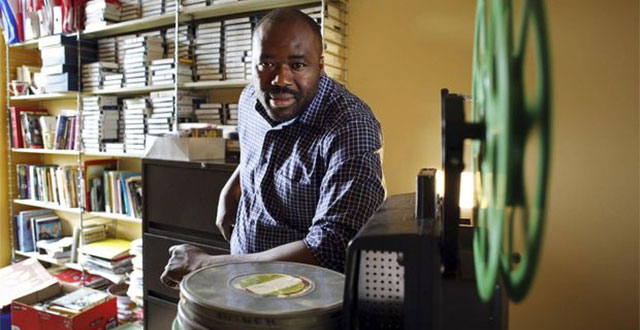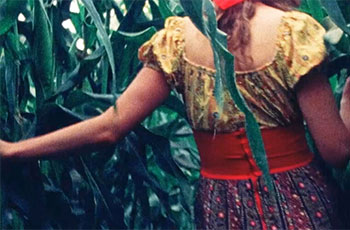
Meet Martin Scorsese’s partner in saving African cinema
DAVE MCGINN 07/27/2017Aboubakar Sanogo spent years trying to track down a copy of Soleil O, one of the most important African films ever made.
"There is before and after Soleil O in the history of African cinema," said Sanogo, an assistant professor of film studies at Carleton University in Ottawa.
The movie, the directorial debut of Med Hondo, about an immigrant who moves to Paris in search of a better life, only to encounter racism and humiliation, has popped up in theatres here and there over the years, but never received wide distribution after it premiered at the Cannes Film Festival in 1970. Imagine not being able to find a print of Mean Streets. This isn't just the sad state of Soleil O, but of much of African cinema itself, Sanogo said.
It's why he's so excited about his latest undertaking, the African Film Heritage Project, launched in partnership with Martin Scorsese's Film Foundation World Cinema Project and the UN Educational, Scientific and Cultural Organization. The goal of the initiative will be to not only preserve and restore African cinema, but to help raise awareness of African films by getting them shown in theatres and at film festivals around the world.
"Preservation is only half the battle," Sanogo said. "The real battle is: Get it seen."
Scorsese's involvement in the project is a personal dream come true for Sanogo, who counts the director among his favourite filmmakers. But more importantly, it gives the project a profile it might otherwise lack.
"He's a Hollywood filmmaker, yet he's acutely aware that Hollywood is simply not enough, that our experience of the world is incomplete if we only see films that Hollywood offers us," Sanogo said.
Scorsese's World Cinema Project, which aims to preserve and restore neglected films, has restored, preserved and exhibited 31 films from around the globe, including Africa, since its launch in 2007.
Hollywood's offerings are so well promoted and vastly distributed that they often push other movies from our sites, intentionally or not, which has certainly been true of African cinema, Sanogo said.
"It has been marginalized precisely because the screens of Africa and the screens of the world are dominated by the cinema of one country primarily," he said.
It's an unfortunate state of affairs for all, regardless of where they come from or call home, Sanogo said.
"The world is not complete if it does not have the African lens to it," he said. "It is a truism that the world was born in Africa. And therefore, to know Africa is to know oneself."
But, he cautioned, "It's important that people don't keep in mind only the historical aspect, but Africa as it moves, as it lives today."
There is a rich tradition of documentaries and experimental and feature films made in Africa, as well as films that date back as far as the early 1900s, but unfortunately many of them are hard to find or are in poor condition, Sanogo said. Just visit the archives in many African countries and you'll see for yourself, he added.
"It brings tears to your eyes."
While it is important to preserve these films and show them to a global audience, it is profoundly necessary to make them available to Africans themselves, Sanogo said.
"The act of seeing oneself on screen is an affirmative act," he said, adding that when we see ourselves on screen, we are able to recognize so much about our lives. "This is the beauty of the culture, this is the beauty of the way we have invented to the world – in our own manner, in our own language, in our own cuisine, in our own music – our own stories, our own institutions, our own ways of being together. That is what cinema does that really makes it a life-affirming medium."
Sanogo was finally able to watch Soleil O after meeting Med Hondo in person.
The African Film Heritage Project has already made it easier for others to see the film. Thanks to the efforts of the project, Soleil O screened in the Cannes Classics section of the famed film festival earlier this year, and then was exhibited at a film festival in Italy last month.
Fighting Hollywood is certainly no easy task, but like every struggle for equality, it is one that benefits us all, Sanogo said. "If all cinematic traditions were treated equally, if the distribution processes and institutions were open to all cinema, the world itself would be much richer."
Globe and Mail